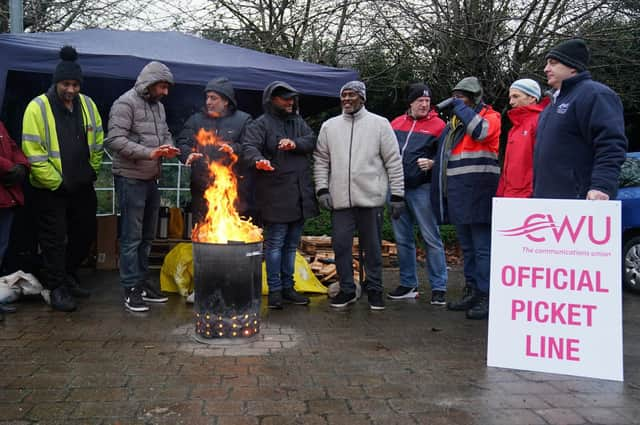Ben Lowry: Many of our political disputes are in fact rooted in our great wealth


Ian Paisley had just begun to share power with Martin McGuinness, and it seemed like political gravity could be defied.
House prices were booming because, we thought, the Celtic Tiger and the wealthy UK economy were both having an impact in Northern Ireland.
Advertisement
Hide AdAdvertisement
Hide AdI was a news editor then and dreaded working on Sundays because things seemed so stable and affluent and quiet. I wondered how we would fill the front page – would we one day have to lead on a cat being stuck up a tree?
I have not had that anxiety for more than 10 years now. Big news is relentless, with almost no quiet times.
Political violence seemed to be returning when a spate of dissident killings began with the Massereene attack in early 2009.
The country was in recession then and house prices were plummeting, as the fantasy of NI as a sort of Singapore was cruelly shattered.
Advertisement
Hide AdAdvertisement
Hide AdThe DUP-Sinn Fein coalition began to be hampered by intermittent crises. The inability to agree for example on welfare reform foreshadowed the current inability of MLAs to take tough decisions on matters such as NHS provision.
Political turbulence stepped up in the middle of the last decade in countries such as Australia and France and then, in 2016, in the UK and US, amid bitter divisions of Brexit and Donald Trump.
Now Northern Ireland is so politically paralysed that there are question marks over the very system of power sharing.
The US is fiercely divided too, in extraordinary ways, as the invasion of Capitol Hill last year showed.
Advertisement
Hide AdAdvertisement
Hide AdAnd the UK, once one of the most stable countries on Earth, now seems unable to resolve industrial disputes.
On this page I write weekly about some of these problems, and my outlook at times is pessimistic. But at Christmas I try to look on the good sides.
I think part of the turbulence we are living through is related to how rich and successful our societies have become. Increases in affluence often lead to trouble.
Next year the News Letter, the oldest English language daily in the world, will turn 286. Twice I have serialised the earliest surviving papers from the late 1730s.
Advertisement
Hide AdAdvertisement
Hide AdOnce, when I had for months been immersed in that time, and I had to go to the Linen Hall library to check one of those old editions. By chance the library had on display a 1780s News Letter, which caused me to stop in amazement as I was suddenly propelled forward 50 years.
Wow, that’s so modern! I thought. The 1780s paper was far more advanced, with adverts that reflected a more prosperous society with a bigger middle class.
And what did such rising wealth lead to? Rising expectations. Instead of being grateful for the new prosperity, people understandably could see further ways to improve, and wanted yet more. There were revolutions in America, then France and almost in Ireland.
In the first 50 years of Northern Ireland, Catholic living standards rose markedly, particularly after the war, and the gap with Protestants narrowed. But it was as things got ever better in the 1960s that the expectations of the then minority rose even further, leading to growing protest that concessions from unionists and from London were unable to quell.
Advertisement
Hide AdAdvertisement
Hide AdIn 2022, overall living standards are far higher than 50 years ago, particularly for poorer social groups: in healthcare, longevity, travel, access to cars, etc. But expectations have soared too. I suspect anger about inequality will worsen.
The struggle for people to live well at the bottom of pay scales has pushed my own politics to the left with regard to the minimum wage, which I still think needs to go up, despite now being higher than ever before.
And those of us in the property owning classes will one day pay for the idiocy of thinking that high house prices are a good thing, when in fact they cause resentment in the young, who can’t buy.
There are huge economic difficulties now, particularly in fuel costs. But in the West we were born into the wealthiest 15% of a world that is richer than it has ever been. We are all benefiting from stunning advances in science in technology.
There is much to be grateful for this Christmas.
Ben Lowry (@BenLowry2) is News Letter editor